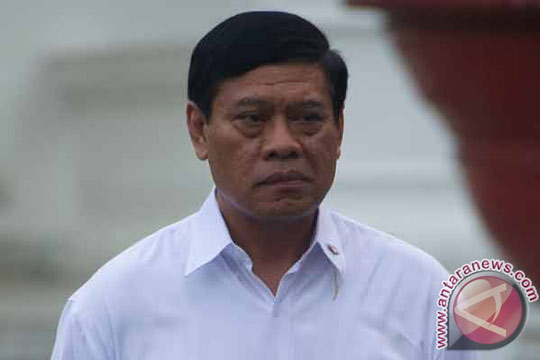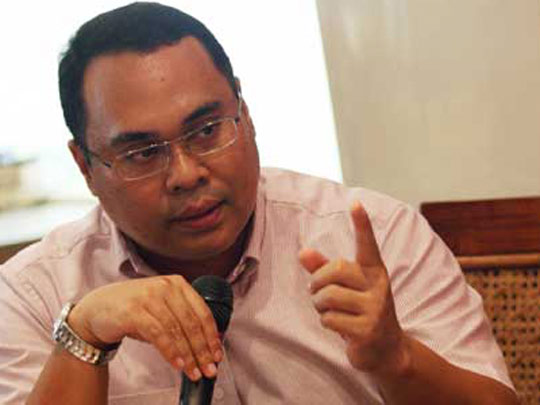
JAKARTA (ANTARA News/ The Jakarta Post/ Pacific Media Watch): Foreign journalists who wish to cover Papua should abide by the laws of Indonesia, says Coordinating Minister for Political, Legal and Security Affairs Tedjo Edhy Purdijatno.
"As a sovereign country, Indonesia has laws and territorial sovereignty," he said.
At a seminar in Jakarta discussing open access to Papua for foreign journalists, Purdijatno said: "foreign journalists should abide by the rules that apply in Indonesia."
Purdijatno remarked that allowing journalists open access to Papua was a strategic policy and that it would help to establish a positive image of Indonesia in the international community.
"It can change the idea the international community has of Papua," he said.
"The message that violence and violations of human rights do not happen in Papua can be disseminated."
Permission forms
In addition, he believes that there are parties who deliver negative information about human rights violations in Papua.
Therefore, any foreign journalists wanting to cover Papua must follow legal procedures such as immigration laws.
Foreign journalists intending to report on Papua are required to fill out permission request forms and submit a letter of assignment from their respective media houses.
Purdijatno also explained that the controversial Clearing House (the Indonesian authority that issues permits to foreign journalists to travel to Papua and West Papua), was essentially to preserve national interests and national sovereignty.
The Jakarta Post reported Purdijatno's announcement that the government would maintain the function of the Clearing House and change its name to the "foreigner monitoring team".
Earlier, President Joko Widodo had ordered the Indonesian Military (TNI) and the National Police to stop using repressive security approaches in Papua.
The president also stressed the need to engage in a dialogue with Papuan people as one of the key measures to build mutual trust.
Government to 'stay cautious'
Warnings have also come from the House of Representatives (DPR) speaker Setya Novanto.
He told the government to stay cautious towards “freely” allowing foreign journalists to enter Papua, saying that there needs to be measures in place so that non-journalistic activities could be prevented or detected.
Setya explained that while the House approves the freedom given to foreign journalists in covering Papua as a show of Indonesia’s transparency, he cautioned the government to keep an eye on possible foreign intelligence operations in the region, which are usually uncovered by local Papuan authorities.
Expert's opinions
But an international law expert with the University of Indonesia, Hikmahanto Juwana, is calling on all elements within society not to be wary of foreign journalists, especially those assigned to report on Papua and West Papua.
The Jakarta Post also reported Juwana said both local and foreign journalists work to get new s stories and as long as journalists have professional attitudes, it shouldn't matter.
s stories and as long as journalists have professional attitudes, it shouldn't matter.
Hikmahanto said foreign journalists’ access to Papua had been enthusiastically welcomed by international media outlets because they could now get information directly from primary sources.
However, foreign journalists who want to report on Indonesia, including Papua, must follow the prevailing codes of ethics and journalistic principles in Indonesia.
“There should not be any discrimination," said Hikmahanto.
"Foreign journalists and media outlets are subject to sanctions from the Indonesian Press Council if found guilty of violating the Journalistic Code of Ethics".
He said that because they shouldn't get special treatment just beacuse they were foreign journalists.
Resolving Papuan issues
Indonesian MP Mahfudz Siddiq said that the TNI should not be provoked by the Free Papua Movement (OPM) that challenged it to wage a war.
"The TNI must promote smart power through the optimisation of intelligence operations in handling the OPM," he said.
Siddiq pointed out that the Indonesian government should pay serious attention to the region, which is prone to political and military conflicts.
He strongly believes that the OPM wants to incite the Indonesian government into using hard power to handle the separatist movement.
Therefore, he called on the Indonesian government and the TNI to not be provoked by the OPM.
This work is licensed under a Creative Commons Attribution-NonCommercial 3.0 New Zealand Licence.




